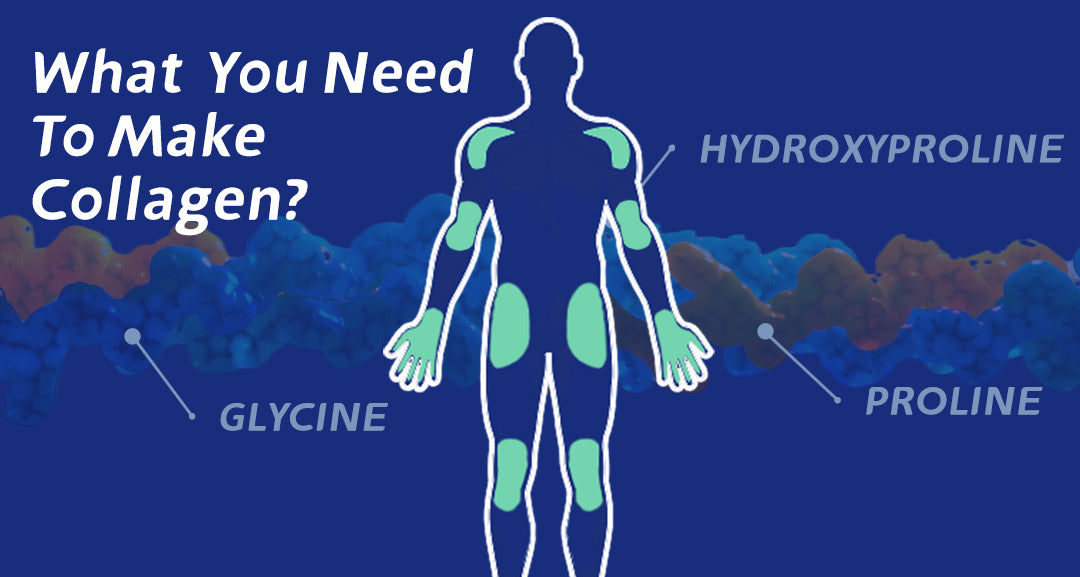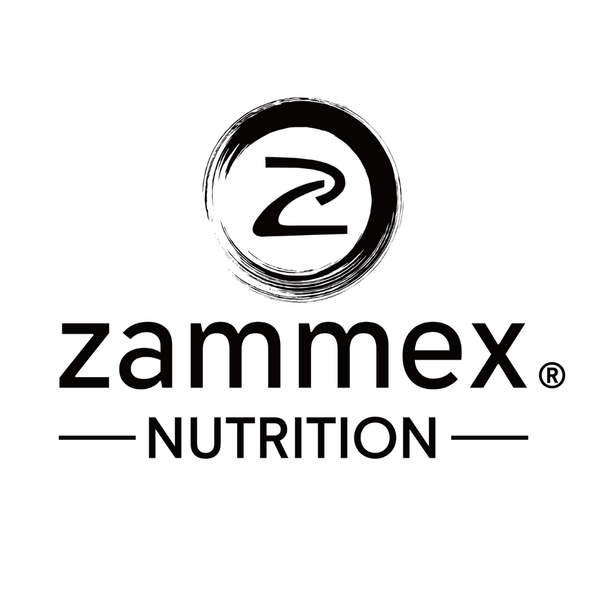
What you need to make collagen?
Collagen is the most abundant protein in the human body, accounting for about 30% of all proteins.
It forms the structural framework for various parts of our body, including hair, nails, skin, bones, ligaments, blood vessels, and organs, essentially acting like the glue that holds us together.
Skin, in particular, consists of a substantial 70% collagen content.

Unfortunately, from the age of 20 onwards, our bodies tend to lose approximately 10% of skin collagen every decade.

Inside us, there are at least 29 different types of collagen, all composed of repeating amino acid chains.
Among these, about 50% are made up of three specific amino acids: glycine, hydroxyproline, and proline. This unique triple helix structure makes collagen exceptionally sturdy.

The 5 most common types of collagen:
- Type I: skin, tendons, vasculature, organs, bones- Type II: cartilage
- Type III: skin, large blood vessels, uterus, intestines
- Type IV: capillaries, kidney, eye lens, skin, liver
- Type V: cell surfaces, hair, placenta
The combination of Types I, II, and III makes up the bulk of our body's collagen, accounting for approximately 80-90% of the total collagen content.
The decline of collagen with age can be attributed to several factors, one of which is insufficient intake of glycine. While the body can synthesize its own collagen, it requires specific building blocks (primarily glycine, hydroxyproline, and proline) to facilitate the synthesis.
Consuming collagen peptides can lead to better absorption of these peptides, directly stimulating collagen production. This is considered one of the quickest and simplest ways to boost collagen levels.
Numerous human trials have shown that collagen peptides contribute to improved skin health and can help reverse signs of skin aging.
PMID: 35223163
PMID: 31627309
PMID: 37432180
PMID: 32799362
A 2021 randomized, triple-blind, placebo-controlled, parallel study on women between 45 and 60 years of age, saw that collagen peptide supplementation for 12 weeks led to a 35% reduction in wrinkle score (PMID: 32799362)
And a 2023 meta-analysis of 26 randomized controlled trials showed that hydrolyzed collagen peptide supplementation significantly improved skin hydration and elasticity (PMID: 37432180)
Taking collagen peptides is the easiest way to increase collagen synthesis and ensure daily requirement for the necessary amino acids.
However, even if the body triggers collagen synthesis on its own, it requires other nutrients to support the process.
Vitamin C plays a crucial role in collagen formation, as it promotes mRNA within cells to initiate collagen synthesis. Insufficient Vitamin C can lead to reduced collagen synthesis and even scurvy, causing bleeding gums.
The formation of pro-collagen through the combination of hydroxyproline and lysine (hydroxylated) also relies on Vitamin C. Additionally, hydroxylation requires iron, as Vitamin C must convert non-active iron (Fe3+) to its active form (Fe2+).
Hence, an adequate intake of iron is necessary as well.
Copper is another essential element, as it helps transport iron throughout the body and facilitates iron absorption. Moreover, copper is vital for the activity of copper-dependent enzyme lysyl oxidase (LOX), which cross-links collagen triple helix, giving collagen its robustness. Without sufficient copper or Vitamin C, collagen lacks its characteristic strength, and its tightly-wound, densely-crosslinked structure is compromised.

Furthermore, sodium enables the absorption of Vitamin C and facilitates its transportation to various tissues in the body, including the skin, bones, brain, and adrenal glands.
In conclusion, the key requirements for collagen synthesis are as follows:
- Glycine, hydroxyproline, proline (found in gelatin, tendons, and skin).
- Vitamin C (obtained from fruits, vegetables, and berries).
- Sodium (from salt and mineral water).
- Copper (found in liver, among other sources).
- Iron (present in meat and other sources).
- Vitamin A (essential for the transportation of copper within the body).
Collagen synthesis can vary depending on individual factors, such as the metabolism and consumption of glycine and Vitamin C, absorption issues, stress levels, inflammation, blood sugar levels, and other lifestyle factors.
